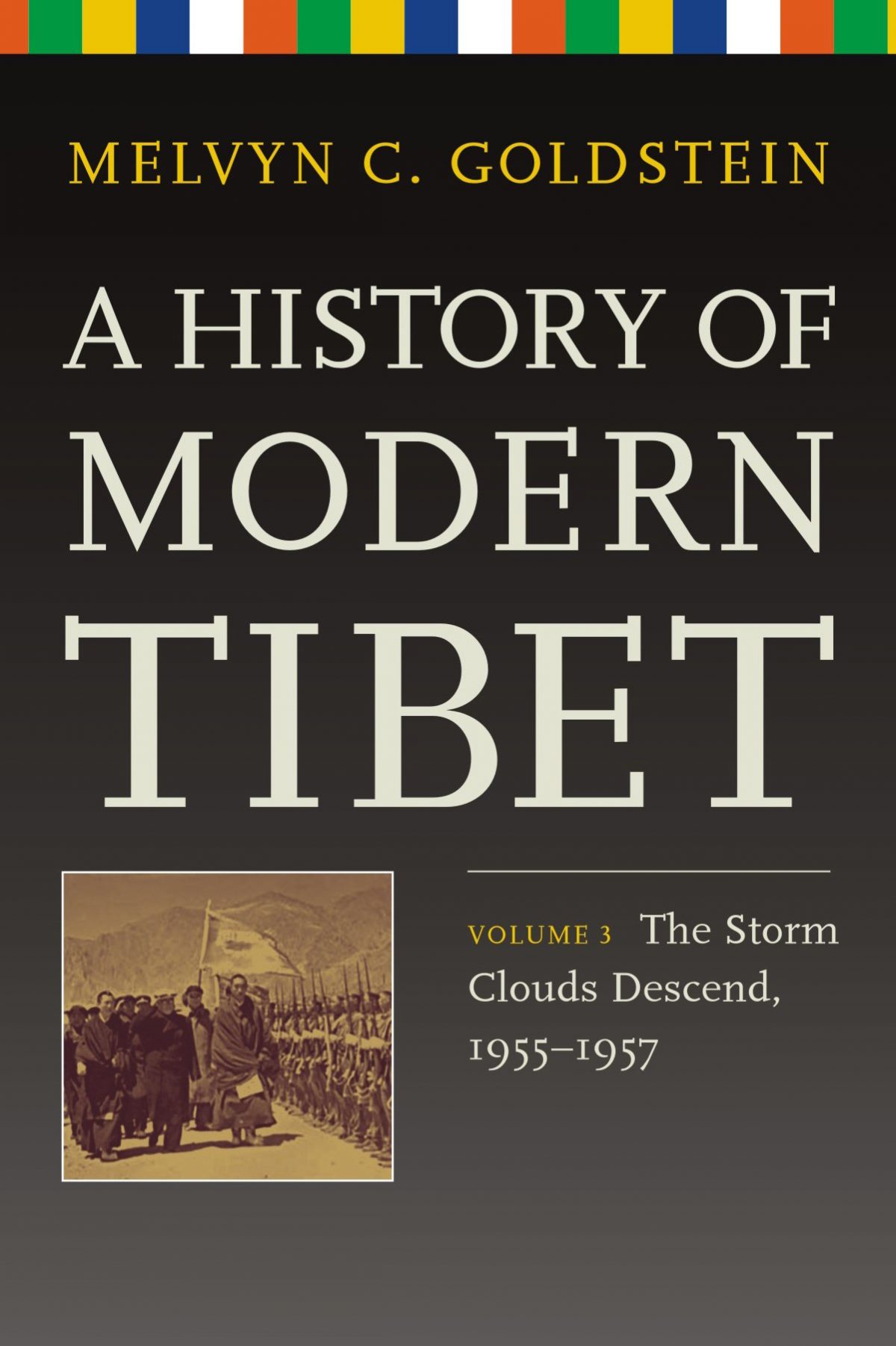A History of Modern Tibet, Volume 3: The Storm Clouds Descend, 1955-1957
About the Book
It is not possible to fully understand contemporary politics between China and the Dalai Lama without understanding what happened in the 1950’s. The third volume in Melvyn Goldstein’s History of Modern Tibet series, The Calm before the Storm, examines the critical years of 1955 through 1957. During this period, the Preparatory Committee for a Tibet Autonomous Region was inaugurated in Lhasa, and a major Tibetan uprising occurred in Sichuan Province. Jenkhentsisum, a Tibetan anti-communist émigré group, emerged as an important player with secret links to Indian Intelligence, the Dalai Lama’s Lord Chamberlain, the United States, and Taiwan. And in Tibet, Fan Ming, the acting head of the CCP’s office in Lhasa, launched the “Great Expansion,” which recruited many thousands of Han Cadres to Lhasa in preparation for beginning democratic reforms, only to be stopped decisively by Mao Zedong’s “Great Contraction” which sent them back to China and ended talk of reforms in Tibet for the foreseeable future. In Volume III, Goldstein draws on never-before seen Chinese government documents, published and unpublished memoirs and diaries, and invaluable in-depth interviews with important Chinese and Tibetan participants (including the Dalai Lama) to offer a new level of insight into the events and principal players of the time. Goldstein corrects factual errors and misleading stereotypes in the history, and uncovers heretofore unknown information on the period to reveal in depth a nuanced portrait of Sino-Tibetan relations that goes far beyond anything previously imagined.
- Author: Melvyn C. Goldstein
- Publisher: Dev Publishers & Distributors
- Edition: First
- Year: 2014
- Dimension: 15 x 23 cm
- No. of Pages: 592
- Weight: 700 gm
- ISBN: 9789381406380
- Binding: Softcover
- Territory: South Asia
- Price: ₹ 1295
About the Author
Melvyn C. Goldstein is John Reynolds Harkness Professor in Anthropology, Codirector of the Center for Research on Tibet at Case Western Reserve University, and a member of the National Academy of Sciences. He is the author of many books on Tibet, including A Tibetan Revolutionary: The Political Life and Times of Bapa Phüntso Wangye (with Dawei Sherap and William R. Siebenschuh), Essentials of Modern Literary Tibetan: A Reading Course and Reference Grammar, and volumes 1 and 2 of A History of Modern Tibet.
Reviews
“Highly Recommended.”—CHOICE
“This volume, like the previous two, is the most comprehensive account of Tibet’s modern history and its interaction with China that no other existing books can match. The scholarship is superior. The amount of primary sources employed and the author’s capability in synthesizing massive materials into a coherent, easy to digest narrative is unparalleled.”—Ho-fung Hung, Associate Professor of Sociology at The Johns Hopkins University and author of Protest with Chinese Characteristics
“This volume continues Goldstein’s foundational contribution to understanding the history of modern Tibet. On a topic contested by contradictory memories, interests, and politics, Goldstein provides a unique breadth of documents and interviews as well as his own narrative. With this book in hand, all serious future research will have to begin with a much broader and more complex reality than hitherto has been possible.”—Brantly Womack, Miller Center C K Yen Chair and Professor of Foreign Affairs, U. of Virginia
Praise for previous volumes:
“Impressively meticulous. [A] wealth of well-ordered detail and primary source material, both Tibetan and Chinese.”—Times Literary Supplement (TLS)
“An excellent and gripping read not only for historians.”—Vineeth Mathoor, Jawaharlal Nehru University, New Delhi South Asia Research


